OTC Impotence Supplements
Natural PDE5 Inhibitors block the breakdown of cGMP inside the corpus cavernous tissue of the penis making it possible for a man with ED to get an erection.
Viagra, Levitra and Cialis do the same thing, but they use a more blunt force approach that can lead to negative side effects.
Natural Inhibitors, on the other hand, are much easier on your system…and the side effects are minimal as long as you use them in reasonable doses.
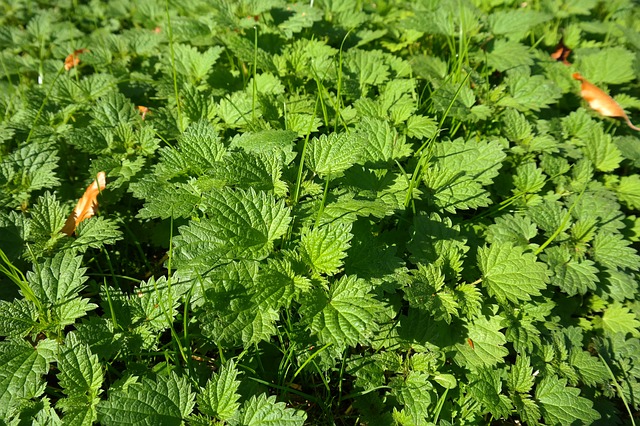
Below, we’ve complied a list of 10 herbs and substances that inhibit PDE5, naturally.
Keep in mind as you go through this list…
Studies on these natural substances are far and few between because you cannot patent an herb or a plant in it’s natural state.
This means you can’t package it up, roll out a multi million dollar advertising campaign…and charge 9 bucks for a pill that only cost you 9 cents to make.
In other words, huge profits are not possible with an herb, so funding for studies is hard to come by.
That being said, we do have a few studies, as well as data on historical use of these plants by indigenous people who’ve used them for centuries for sexual enhancement.
In some situations, we assume a plant works by blocking PDE5, but there’s always the possibility the plant enhances erections in another way.
But as long as it works for you, that’s all that really matters , right?
I’m going to give you a quick re-cap here at the top of this page before I send you over to Eric, the author of the post…
Here’s the list of inhibitors along with a few cliff notes to get you started…
- Horny Goat Weed (blocks PDE5 and boosts libido, which the ED drugs do not do)
- Artichoke Extract (another inhibitor that also reduces aromatase)
- Forskolin (this acts as an anti-aromatase as well)
- Quercetin (elevates GMP threefold according to a study published in the British Journal of Pharmacology)
- Cinnamon (decreased collagen in rat penile tissue according to one study)
- Tongkat Ali (May inhibit PDE5 at higher dosages – also boosts sex drive)
- Black Ginger Extract (next to goat weed, the most powerful inhibitor on this list)
- Butea Superba (another potential inhibitor that also increases libido)
- Gingko Biloba (increases blood flow and may also reduce the action of PDE5)
- Caffeine (effects are mild but can increase the inhibiting effects of the others)
Now here’s Eric…
10 Natural PDE5 Inhibitors
There is an important substance in your body that plays a key role in your ability to develop and maintain erections. This substance is guanosine monophosphate (cGMP), which causes red blood cells to surrender nitric oxide.
There is another substance in your body called PDE5 which helps to regulate levels of cGMP in your blood.
And if this PDE5 is too active in your system, it will reduce cGMP levels in your body and make it nearly impossible for you to achieve a usable erection.
PDE5 is the substance that erectile dysfunction drugs work to artificially block, but they do this in a potentially dangerous way which can interfere in the normal functioning of your body.
Natural supplements, on the other hand, can assist you in achieving an erection, without the dangerous side-effects that can accompany pharmaceutical medications.
Overall your goal should be to:
- Boost testosterone – control estrogen
- Increase the ED boosting gas, nitric oxide
- Reduce cortisol to optimal levels
- Reduce PDE5 & increase cGMP
If this goal can be achieved, your chances of consistently achieving usable erections will be increased dramatically..
Now let’s take a look at these natural PDE5 inhibitors.
1. Horny Goat Weed / Epimedium
Yes it has a funny name, but it also has a serious application. This is a powerful natural PDE5 inhibitor that has been used to help treat erectile dysfunction for over 2000 years.
It may also be helpful in treating a number of other health problems. Unlike pharmaceutical ED medications, there is plenty of evidence that horny goat weed also has a positive effect on libido.
To ensure maximum potency you should seek out products that contain at least 10% icariin, which is the primary active PDE5 inhibiting ingredient.
Icariin has also been found to elevate testosterone in the body…and it has also been shown to help the body store and release more cellular nitric oxide.
Of all the products in this class, horny goat weed is the most effective.
The risk of harm is very low, especially compared with pharmaceuticals, but it can potentially have some risks in certain people.
It may be unsuitable for those using medications to control high blood pressure or anticoagulants. People with low blood pressure should also exercise caution, as the herb has a tendency to bring blood pressure down.
These warning aside, if goat weed is used appropriately, it is much safer than pharmaceuticals used for the same purpose.
A side-by-side comparison with Viagra (sildenafil) may help to demonstrate why horny goat weed (epimedium) is a safer option.
Horny Goat Weed vs. Viagra Comparison Chart
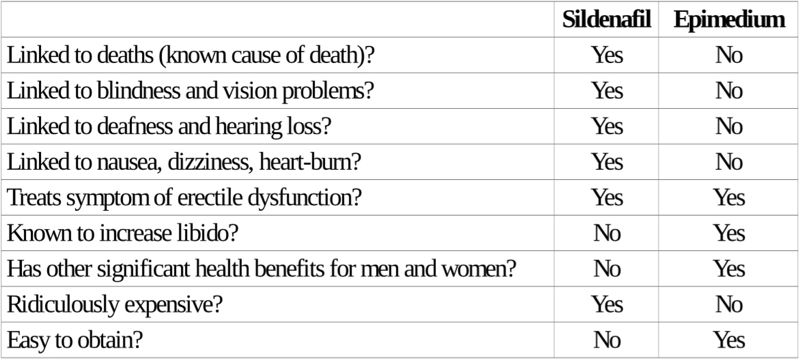
You can more info on horny goat weed from our current supplier Here.
2. Artichoke Extract
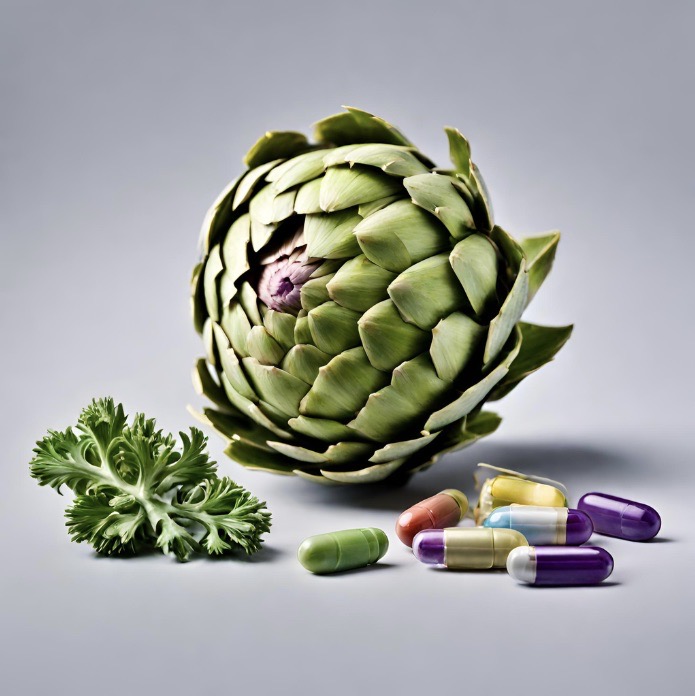
The active ingredient in artichoke extract is Luteolin, which has been targeted as a PDE5 inhibitor.
While it doesn’t have the extensive history in the West that horny goat weed does, luteolin has been linked to a wide range of health benefits.
As with horny goat weed, luteolin has been an ingredient in traditional oriental medicine for quite a long time, but has only slowly found favor in the West.
Researchers have found that luteolin scavenges free radicals that cause damage to healthy DNA, while also suppressing DNA synthesis of cancer cells.
Luteolin has also been found to have anti-inflammatory properties, so it may help reduce the severity of ailments where inflammation is a primary symptom.
But what we’re really interested in is how luteolin can help with erectile dysfunction. There is good news and there is bad news. Let’s start with the good news.
First off, one of the effects of luteolin is that it inhibits aromatase, which is a good thing because aromatase converts your testosterone into estrogen. Luteolin also inhibits PDE5 activity in the blood.
The bad news, which may not actually be all that bad, is that luteolin also inhibits other PDE molecules, including PDE4.
While there are no conclusive studies on the negative effects of PDE4 inhibition in humans, studies have shown that PDE4 inhibition may lead to increased nausea and vomiting in ferrets and other small mammals. Make of that what you will!
Luteolin is a less potent PDE5 inhibitor than epimedium and may take more time to be effective.
You would have to take quite large doses of luteolin for it to be considered unsafe. It is found in many vegetables that you probably already eat, including carrots, parsley, olives, broccoli, celery, and of course artichokes.
Based on all the available evidence luteolin is a relatively safe natural inhibitor of aromataze and PDE5. It would probably be a good idea to keep it away from your ferret, though.
3. Natural PDE5 Inhibitors – Forskolin
An extract of the coleus plant, forskolin is primarily marketed as a fat-burner. It does seem to be effective in that role, but like luteolin it also has been found to inhibit aromataze and PDE5.
The fat-burning effect of forskolin may increase it’s work against aromatase, since aromatase is mainly stored in body fat. More fat equals more aromatase, and this in turn equals lower testosterone.
It is a relative newcomer to western markets and there has not yet been a lot of interest from the scientific community, but it appears to be generally safe if used in reasonable dosages.
Some studies have found that forskolin may also help to reduce the growth of colon cancer cells when combined with rolipram (a PDE4 inhibitor).
While more research would definitely be welcome, for the moment it looks like forskolin can help you burn fat, boost testosterone, and inhibit PDE5.
On this basis, and due to a lack of evidence of significant harmful effects, it would appear that forskolin should be safe enough for short-term cyclic use, except by those taking blood pressure medications or those with low blood pressure.
4. Natural PDE5 Inhibitors – Quercetin
This natural PDE5 inhibitor is found in a variety of natural foods. One of the richest concentrations is found in raw capers, which contain up to 234 mg per 100g.
The problem is…it would be very difficult to consume 100g of commercial capers due to their extreme saltiness.
Fortunately there are plenty of other natural sources of quercetin, and you can also buy it in supplement form.
According to the University of Maryland Medical Center, quercetin has many potential uses, but primarily it is useful as an antihistamine and anti-inflammatory supplement.
Unfortunately quercertin hasn’t attracted much attention from the scientific community, but the few studies we do have look promising.
When quercetin is used in combination with forskolin, it seems to increase the erection-enhancing properties of both substances. It also seems to have properties that boost nitric oxide levels.
In common with most of the other products on the list, quercetin also helps to lower blood pressure.
A 2010 study published in the British Journal of Pharmacology found that:
“quercetin also elevated coronary artery cyclic GMP content threefold” – Suri, et al (2010), British Journal of Pharmacology.
This study, like the original experiments that led to the discovery of sildenafil, focused on applications to treat heart disease rather than erectile dysfunction, but the implications are pretty clear that it works in a very similar way.
Because the mechanism of action for quercetin is believed to be similar to that of sildenafil, it can be expected to provide similar results.
5. Cinnamon
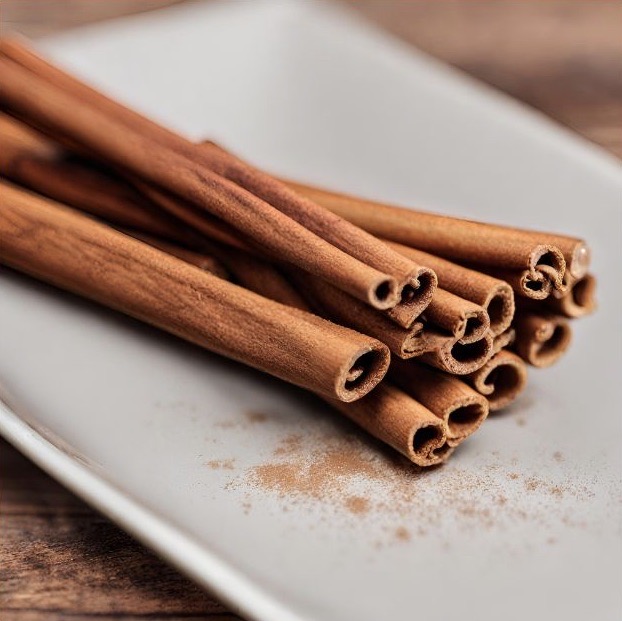
How about that, huh? A spice found in almost every kitchen has made its way onto our list of natural PDE5 inhibitors.
That doesn’t mean you should rush to the kitchen and start eating it by the spoonful. Do a search for “cinnamon challenge” on YouTube to find out why that’s a bad idea!
But you may find that mixing a bit of cinnamon into the foods you normally eat can boost their flavor and boost your health. As with everything, moderation is the key to success.
There are two common varieties of cinnamon available:
- Cassia – very common, relatively inexpensive, and having a stronger, less sweet taste.
- Ceylon – typically more difficult to obtain, much more expensive, and a more subtle taste.
Of these two varieties, the one that has been studied the most is cassia cinnamon (Cinnamomum cassia). This variety is the cheapest and most widely available.
Here’s a quote from one of these studies:
“C. cassia… significantly increased (P < 0.05) sexual function of young male rats. Treatment with the extract also increased smooth muscle level and decreased collagen level in rat penile tissue. The study proves usefulness of methanol extract of C. cassia bark for increasing sexual function.” – Goswami, et al (2014), the Journal of Sexual Medicine.
Cassia cinnamon does contain a substance that can be harmful to the liver if taken in large amounts over a long period of time.
Ceylon cinnamon has significantly less of this substance, therefore is a safer choice, but neither type of cinnamon is likely to cause health problems for most consumers unless taken in excessively large amounts.
Both types of cinnamon also give the cardiovascular system a boost, which will help build your erection potential as well.
When used in combination with ferula hermonis, as in the Ayurvedic tradition, it may help complement the actions of that herb.
Ferula hermonis is found in Lebanon and is a relative of the common carrot. Similar to horny goat weed, it first came under attention when herders noticed the libido-enhancing effect it was having on their goats.
Most studies suggest that ferula hermonis increases testosterone production in males due to effects on the production of luteinizing hormone and gonadatropin.
When combined with cinnamon’s PDE5 inhibiting role, good results can be expected.
6. Tongkat Ali (Eurycoma longifolia)
An herb native to Malaysia, also found in Indonesia and a smattering of other South East Asian countries, tongkat ali has been used locally for centuries as an overall health tonic and sexual stimulant.
Unlike many of the other products listed on this page, tongkat ali has been the subject of numerous studies, and the findings are overwhelmingly positive.
The libido/erection enhancing properties of tongkat are well-known, possibly due to its impact on PDE5 at higher dosages, although more research is needed before we can come to any conclusions on this last point.
Tongkat ali has been found to promote testosterone production and inhibit cortisol production. Of particular note, one study into a particular commercial preparation of Tongkat Ali found that:
” Our study demonstrates significantly improved subjective libido scores as well as improved sexual performance when compared to placebo.” – Udani, et al (2014), Evidence-based Complementary and Alternative Medicine.
7. Black Ginger Extract
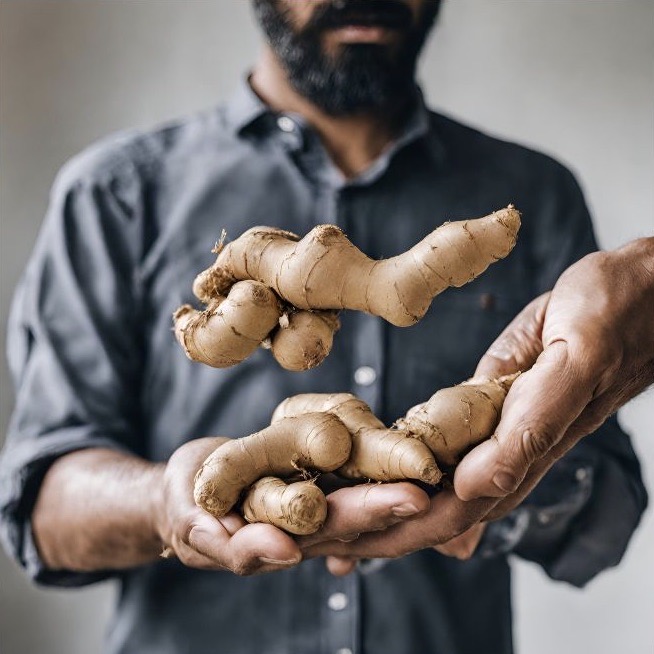
Black ginger (Zingiberacea kaempferia) is a plant native to Thailand and also found in some other Asian countries. Just like regular ginger it has many health-promoting effects, especially on the circulation of blood to the extremities.
The effects of black ginger appear to be much stronger than those of regular ginger, and over-consumption can lead to mild short-term side-effects which are usually not too harmful but can still be unpleasant.
Because it has a very similar action to sildenafil, black ginger can have an effect on heart rate.
Very high doses should be avoided for this reason, and obviously if you are taking any medications that has an effect on heart rate you should be careful.
The important thing to remember with black ginger is that a little goes a long way. You do not need much to get an effect.
Many of the products on this list get their power from substances known as flavonoids.
These compounds affect the pigmentation of fruits and vegetables, and in general darker colors are a good indication of high flavonoid content.
Blackberries and blueberries for example have high levels of flavonoids. Black ginger is no exception, in fact it is absolutely packed with flavonoids!
The most potent of these flavonoids is dimethoxyflavone, which is a very powerful natural PDE5 inhibitor.
Because black ginger extract has also been found to promote nitric oxide production. So it inhibits PDE5 and boosts nitric oxide levels.
As long as you are not taking heart medications and you stay within the recommended dosages, you should find black ginger extract to be safe and effective.
The product is available in powder form or as an alcohol based suspension.
The powder is purple in color due to the presence of flavonoids from the base ingredient, and it will have a slower effect than an alcohol-based suspension… but the effect may also be more powerful and long-lasting.
Most good formulations contains 30% black ginger extract and 70% modified starch.
Because of the tendency of black ginger to increase heart rate, it is unwise to consume it in conjunction with energy drinks containing high levels of caffeine and/or guarana.
8. Natural PDE5 Inhibitors – Butea Superba
Butea superba is another product originating from Thailand that is recognized for its PDE5 inhibiting ability.
This supplement is usually sold in capsule form. It is also known by its Thai name, kwao krua daeng.
As with many other products on the list, superba has not been subjected to much scientific testing, but there is a long history of use locally and plenty of anecdotal reports of health benefits…including increased libido and sexual performance.
A report in the Indian Journal of Endocrinology and Metabolism cited a case of a Thai man suffering from hyperandrogenemia, which means over-production of androgens, as a result of ingesting butea superba supplements.
This case is notable because the main complaint was “increased sexual drive”. The reason the man was complaining about this was because he had been taking it for hair loss… and experienced the elevated libido effect as well.
Another study that ran for 3 months found that Butea superba was effective in treating ED at a dose of 500mg a day.
9. Gingko Biloba
Native to China but cultivated in many parts of the world, gingko biloba is one of the most ancient and well-known health supplements on the market.
In supplement form (usually pills or capsules), gingko biloba is marketed mainly for improving blood flow (good for erections) and enhancing brain function.
It’s role as a PDE5 inhibitor and nitric oxide promoter is less well-known and not something that marketers have made a meal of yet, despite scientific evidence confirming it.
For example:
“Ginkgo biloba generally had a positive effect on all 4 phases of the sexual response cycle: desire, excitement (erection and lubrication), orgasm, and resolution (afterglow). This study originated from the observation that a geriatric patient on ginkgo biloba for memory enhancement noted improved erections” – Cohen & Bartik (1998), Journal of Sex and Marital Therapy
And finally…
“Ginkgo biloba dimeric flavonoids (GBDF) were shown to inhibit cAMP phosphodiesterase activity and to promote vasorelaxation… All biflavones inhibited PDE5A1 in a concentration-dependent fashion, ginkgetin being the most potent.” – Dell’Agli, et al (2006), Journal of Medicinal Plant Research
10. Natural PDE5 Inhibitors – Caffeine

Yep – plain old regular caffeine that you find in coffee, tea, cola, and chocolate.
It doesn’t have a powerful PDE5 inhibiting effect (or you would have heard about that long before now) but when used with the other products on this list it can boost their effects synergistically.
Because it increases heart rate it is best not to use it in high doses and I’d also recommend against using it with black ginger.
Natural-PDE5-Inhibitors Conclusion:
There is a wide variety of natural PDE5 inhibitors on the market which can be expected to have far fewer harmful effects than synthetic PDE5 inhibitors such as sildenafil and related products.
Except in the case of those taking medicines to treat circulatory problems or those who have abnormally low blood pressure, most of these products can be regarded as reasonably safe as long as the recommended dosages are not exceeded.
Best results may be obtained from a cyclic approach to prevent the body from building up a tolerance or dependence on any individual product.
Most of these products are less expensive and easier to obtain than synthetics, and some of them can provide additional health benefits as well.
Not all of these natural PDE5 inhibitors have been subjected to rigorous scientific testing, but this can be attributed to lack of funding when there is so much more profit potential in synthetics.
Most of these products have been used in traditional oriental medicine for hundreds or even thousands of years and there is no good reason to doubt the anecdotal evidence of thousands upon thousands of men who have reported increased libido and sexual performance as a result of using these natural products.
Ultimately it is up to you to decide what is best for your body and circumstances, and I hope that this guide will be helpful for you in making your decisions.
References:
Effects of icariin on erectile function and expression of nitric oxide synthase
https://www.ncbi.nlm.nih.gov/pubmed/16281085″
The testosterone mimetic properties of icariin
http://www.ncbi.nlm.nih.gov/pubmed/16751992
The effects of forskolin and rolipram on cAMP
http://www.ncbi.nlm.nih.gov/pubmed/24520882
Forskolin up-regulates aromatase (CYP19) activity
http://www.ncbi.nlm.nih.gov/pubmed/14709151
Quercetin and its major metabolites selectively modulate cyclic GMP
http://www.ncbi.nlm.nih.gov/pmc/articles/PMC2828021/
Antioxidant treatment with quercetin ameliorates erectile dysfunction
http://www.sciencedirect.com/science/article/pii/S1389172311001964
Eurycoma longifolia (tongkat ali) on Sexual Performance and Well-Being in Men
http://www.ncbi.nlm.nih.gov/pmc/articles/PMC3914427/
Cinnamomum cassia Methanol Extract and Sildenafil on Arginase and Sexual Function
http://onlinelibrary.wiley.com/doi/10.1111/jsm.12535/abstract
The use of Butea superba compared to sildenafil for treating erectile dysfunction
http://www.ncbi.nlm.nih.gov/pubmed/19624593
Inhibition of cGMP-phosphodiesterase-5 by biflavones of Ginkgo biloba.
http://www.ncbi.nlm.nih.gov/pubmed/16557462
Ginkgo biloba for antidepressant-induced sexual dysfunction
http://www.ncbi.nlm.nih.gov/pubmed/9611693
